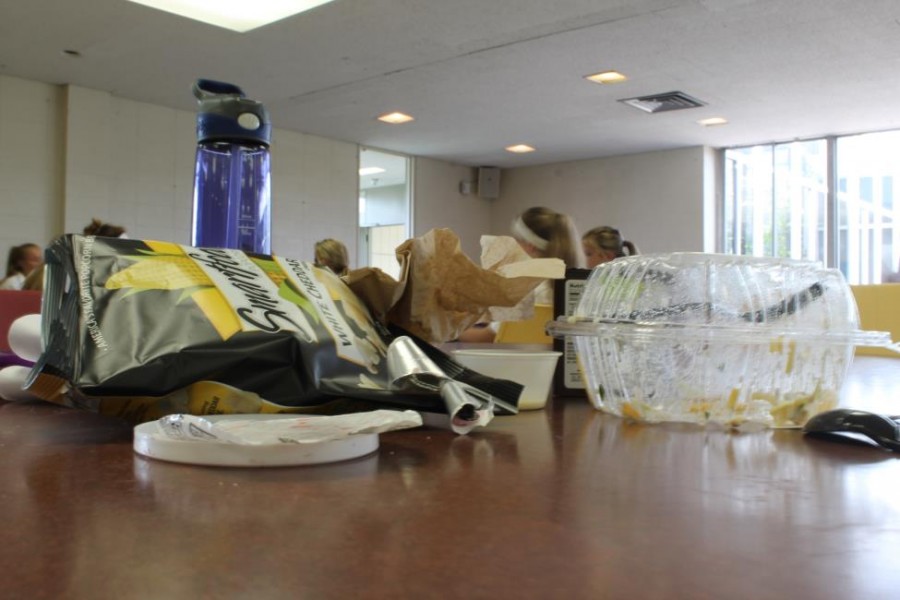Clamoring for a cleaner caf
Trash and wrappers litter the floor. Gobs of food and puddles of spilled liquid coat nearly every table. Garbage lies outside of the trash cans rather than in them. Anyone who has entered Mercy’s cafeteria, especially near the end of a school day, is familiar with this scene. While some students keep their areas clean, others seem to leave their manners in the classroom as they abandon their garbage and fail to clean up the messes they make. Affected most by these messes are those who have to clean them up.
“It takes three guys two hours to clean the cafeteria,” said maintenance staff member Mr. Andrew Skowronek, who believes that the time spent cleaning the cafeteria each day could be better spent maintaining other areas in the building. “It’s ridiculous.”
Students find the untidiness to be just as frustrating.
“It’s disgusting,” said junior Sabrina Yancey. “Sometimes I have to get a napkin and wipe off my whole table before I sit down.”
The state of the cafeteria has not escaped the notice of Mercy’s administration, either. Stepping up the level of cafeteria cleanliness is one of Ms. Eleasha Tarplin’s, Dean of Student Affairs, major goals this school year.
“My goal is to clean it up,” said Ms. Tarplin. “I’m not looking for perfect, but [for] just cleaning up after yourself [and] not leaving trash on the table when you get up to go to class.”
In addition to trash, student belongings clutter tables and make them unavailable to other students. Mrs. Tarplin plans on implementing several new strategies to combat the messiness, including confiscating personal items left unattended, and sending school-wide emails informing students of the progress (or lack thereof) made toward keeping the cafeteria clean. While measures like these may lead to improvement, the responsibility ultimately rests on students’ shoulders.
“This is home,” said Yancey. “So why would we treat it like trash?”

